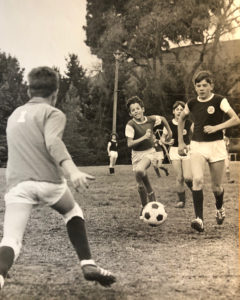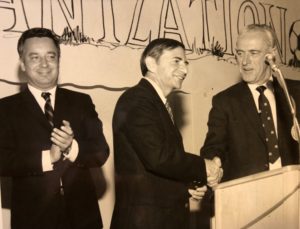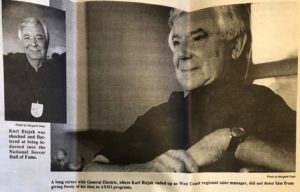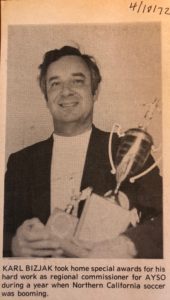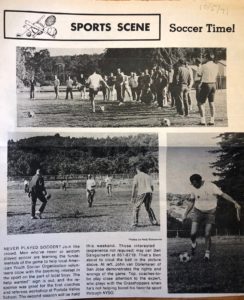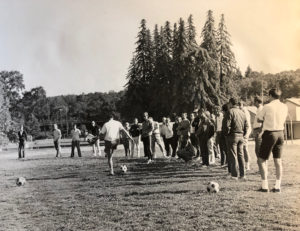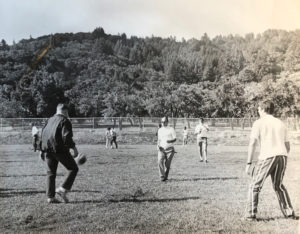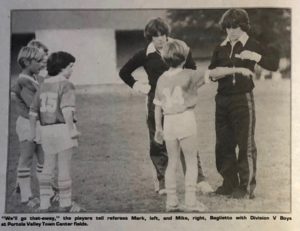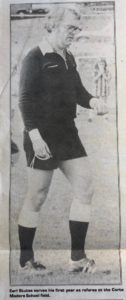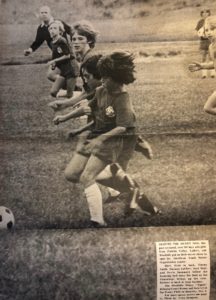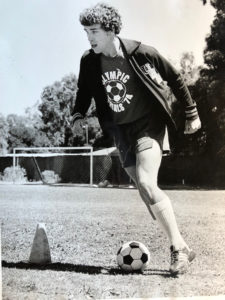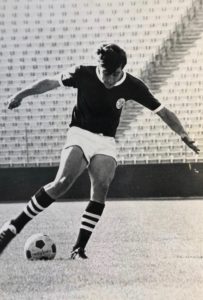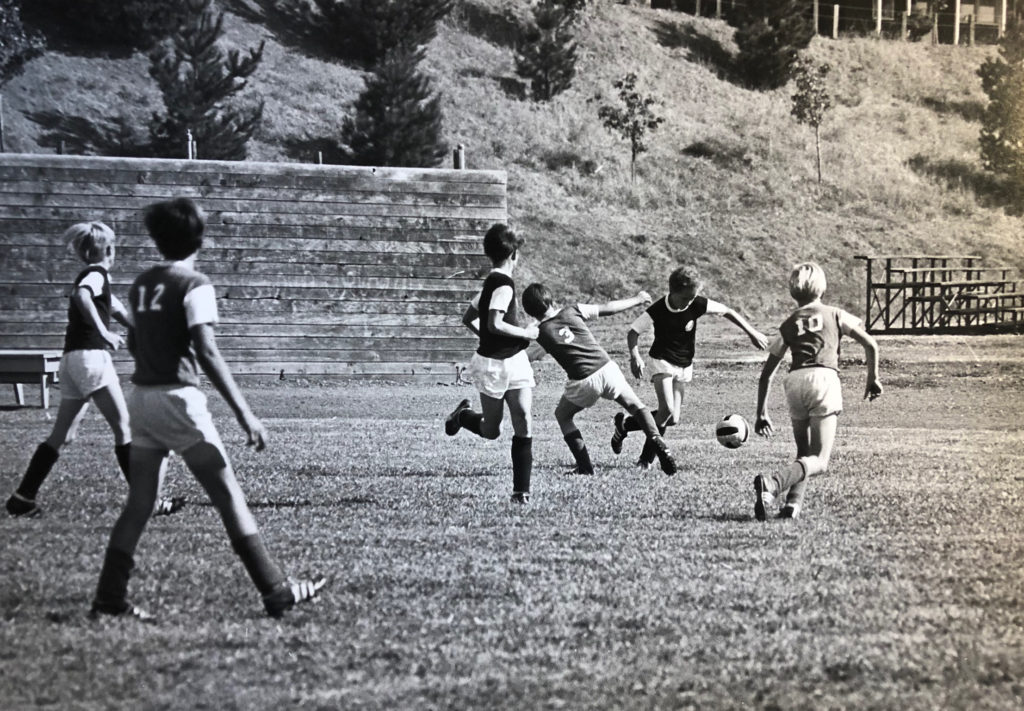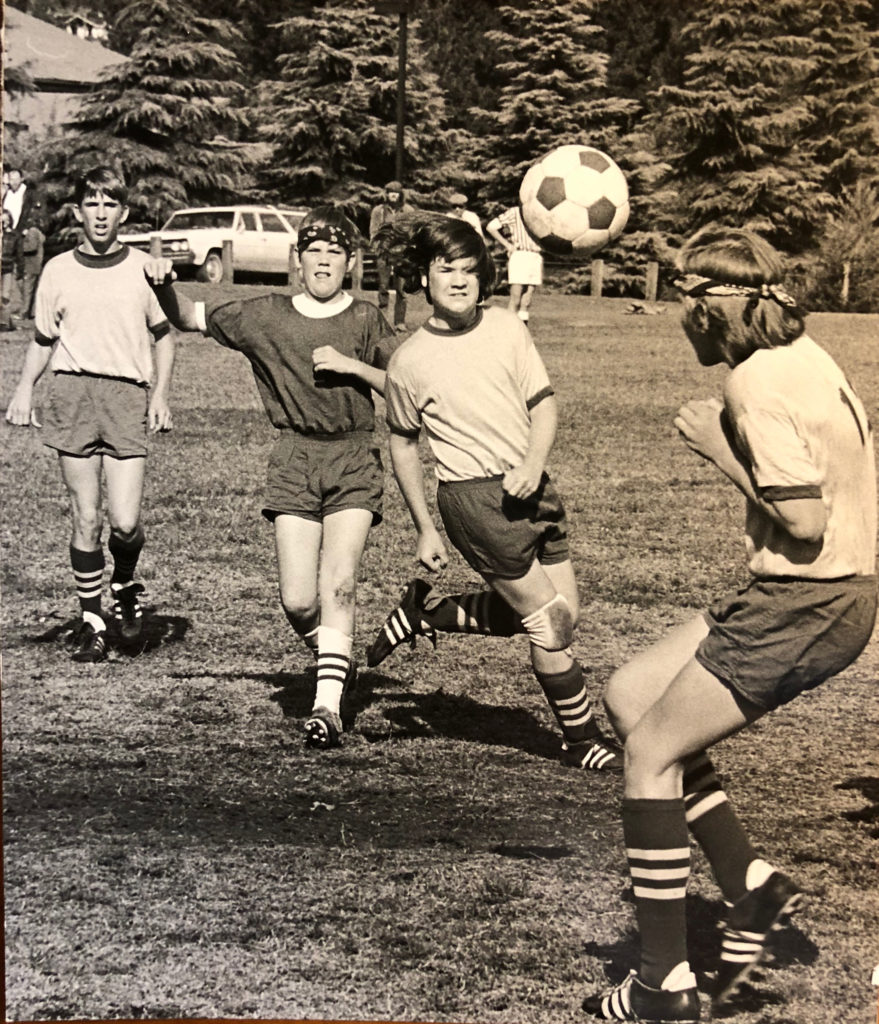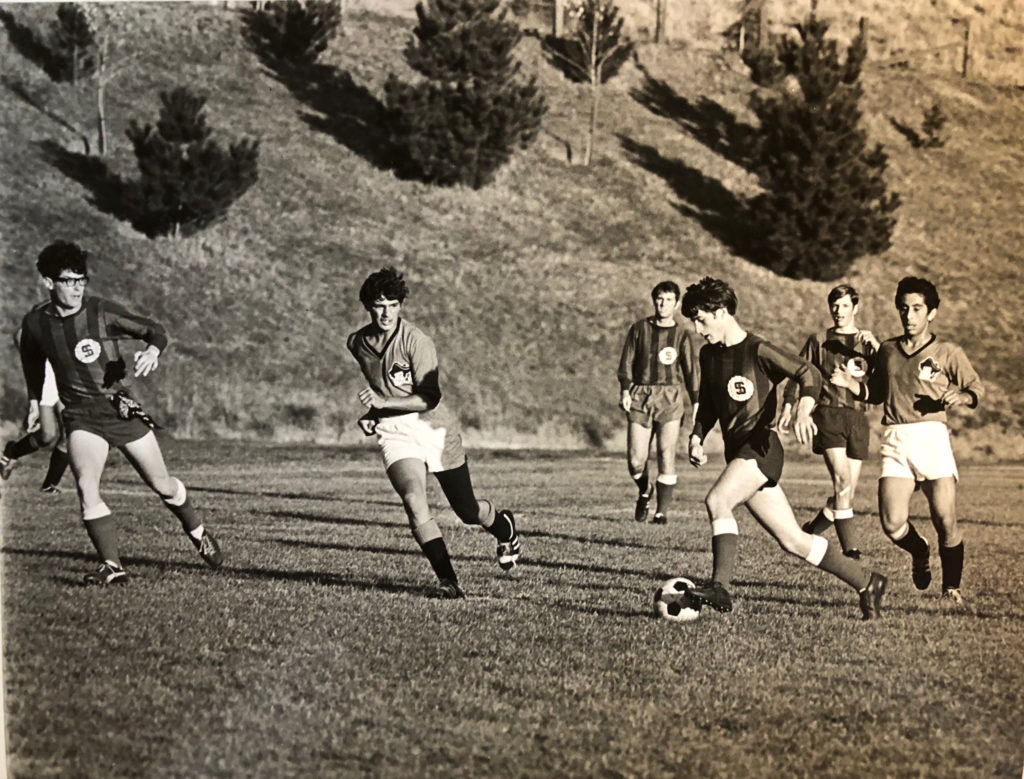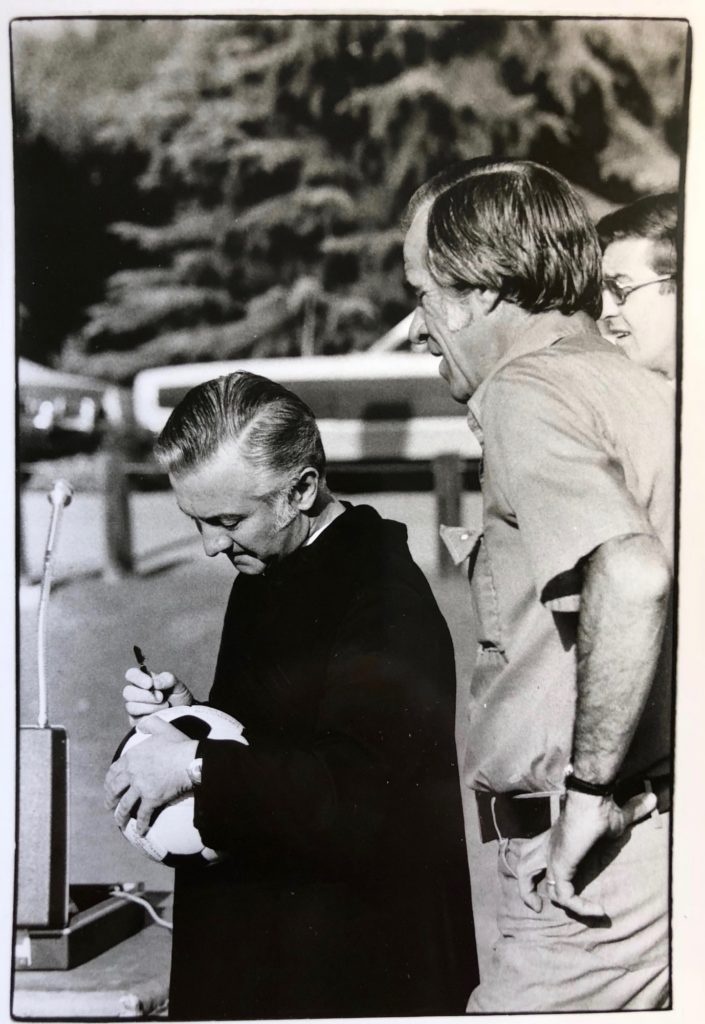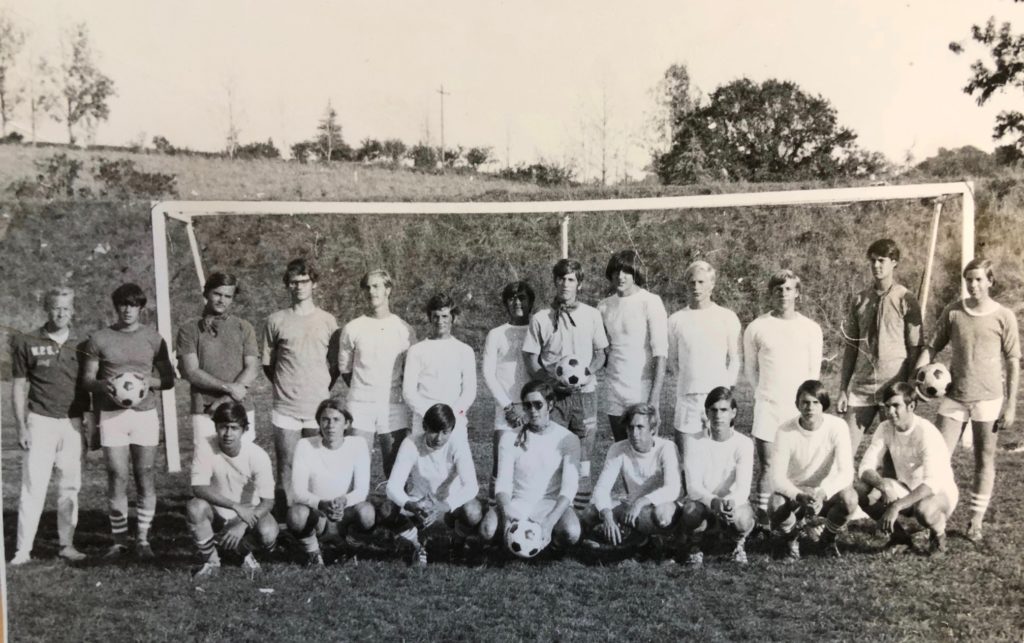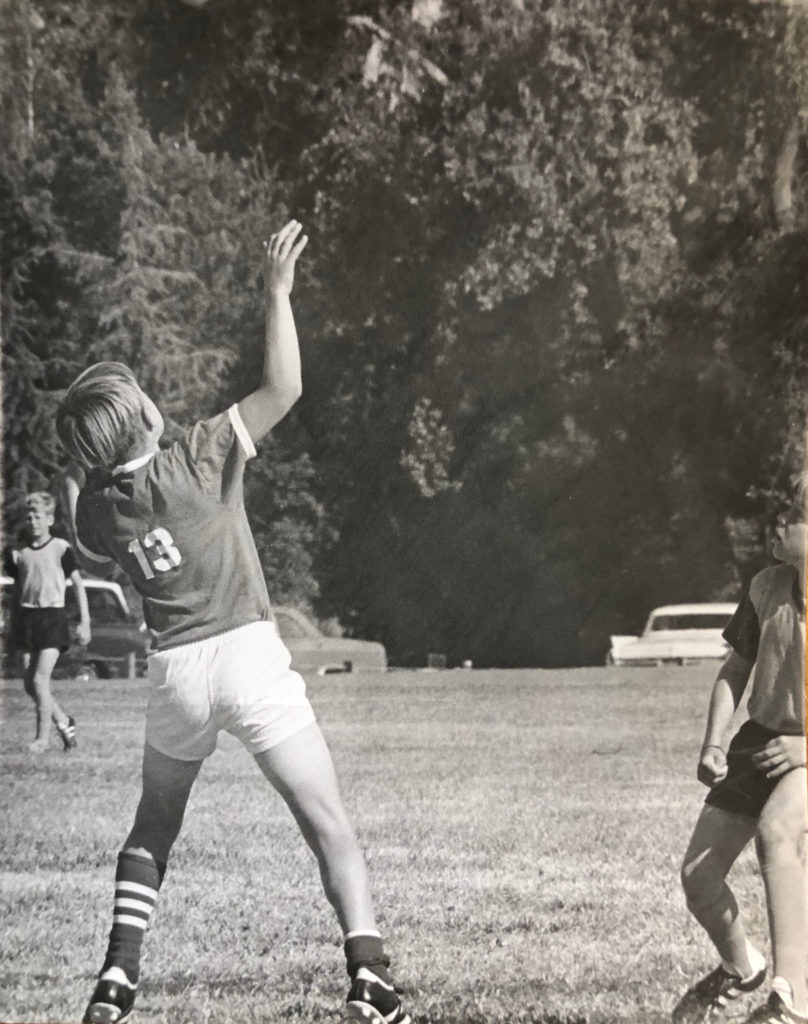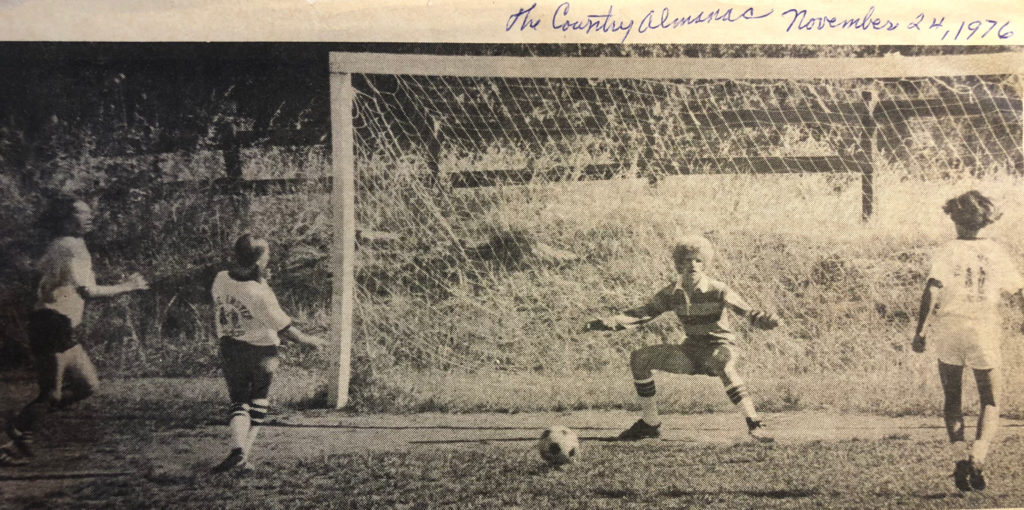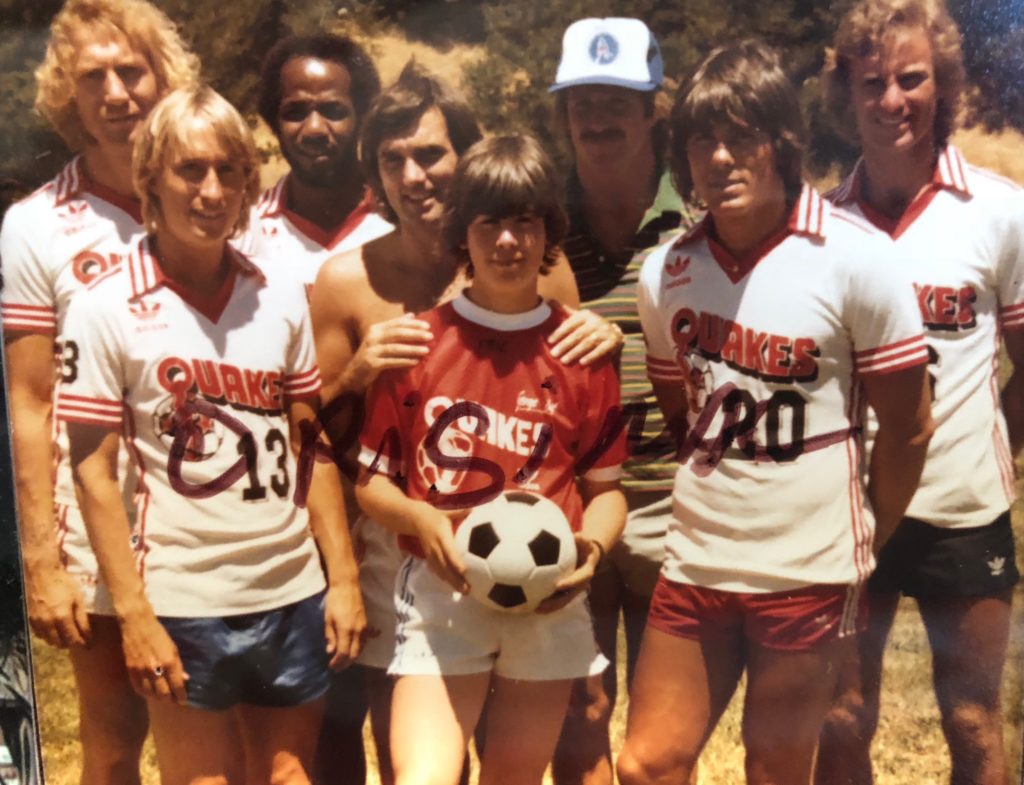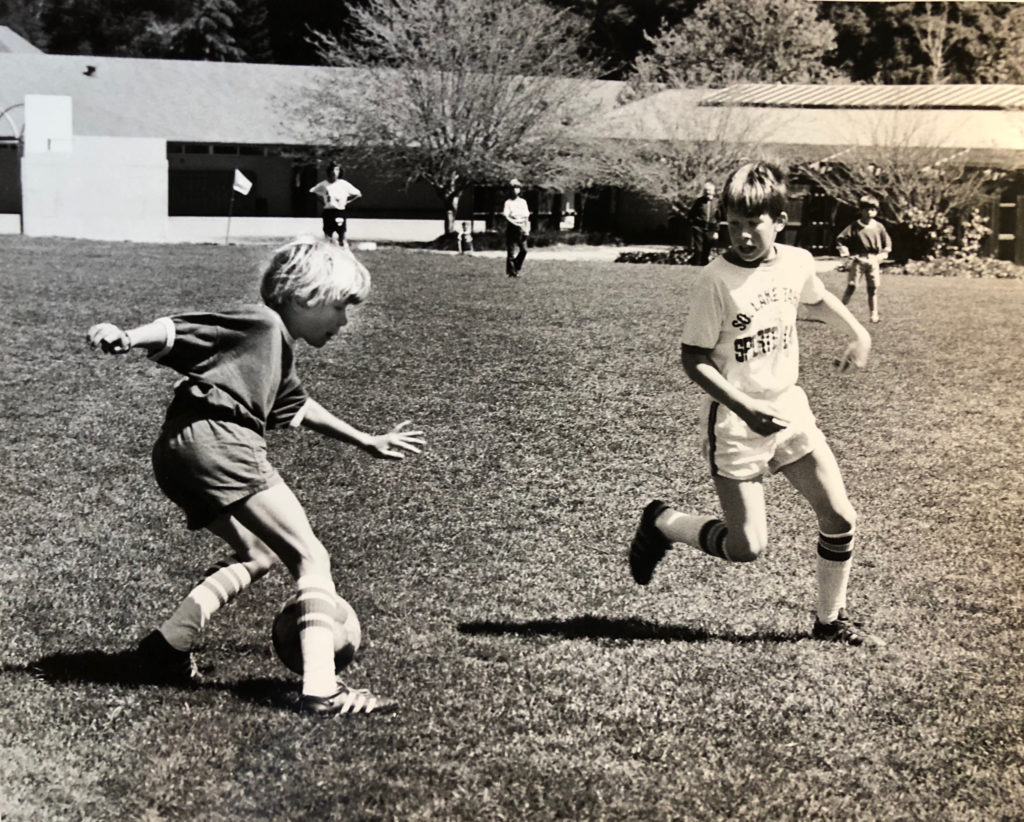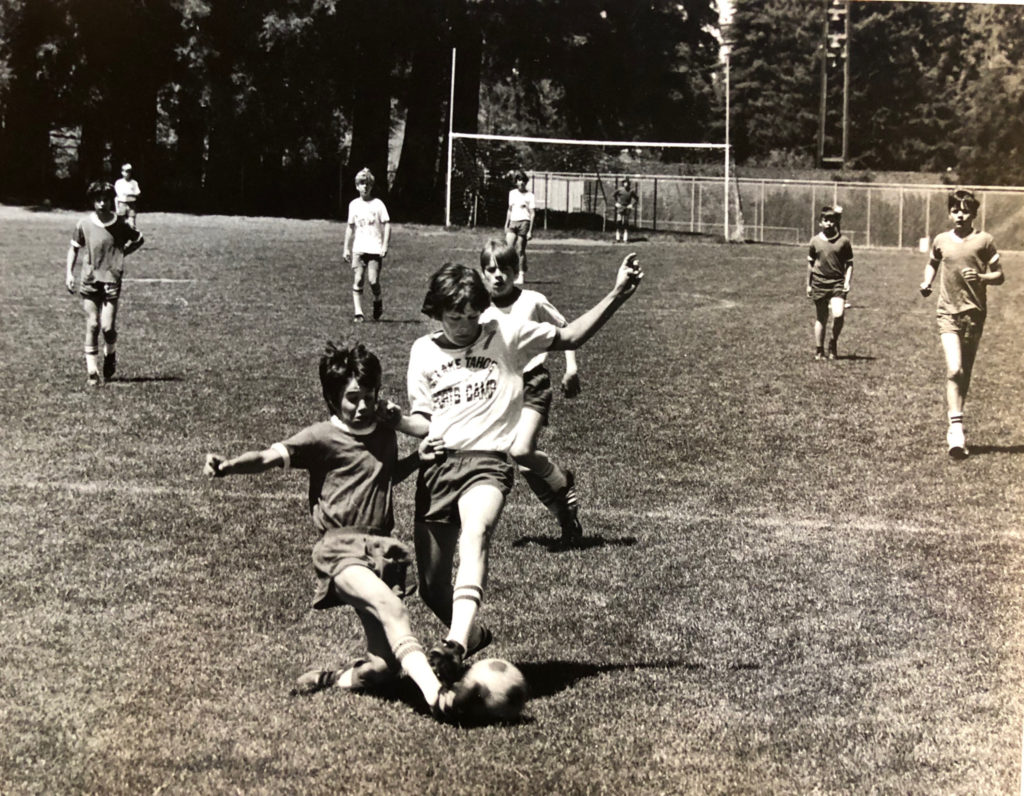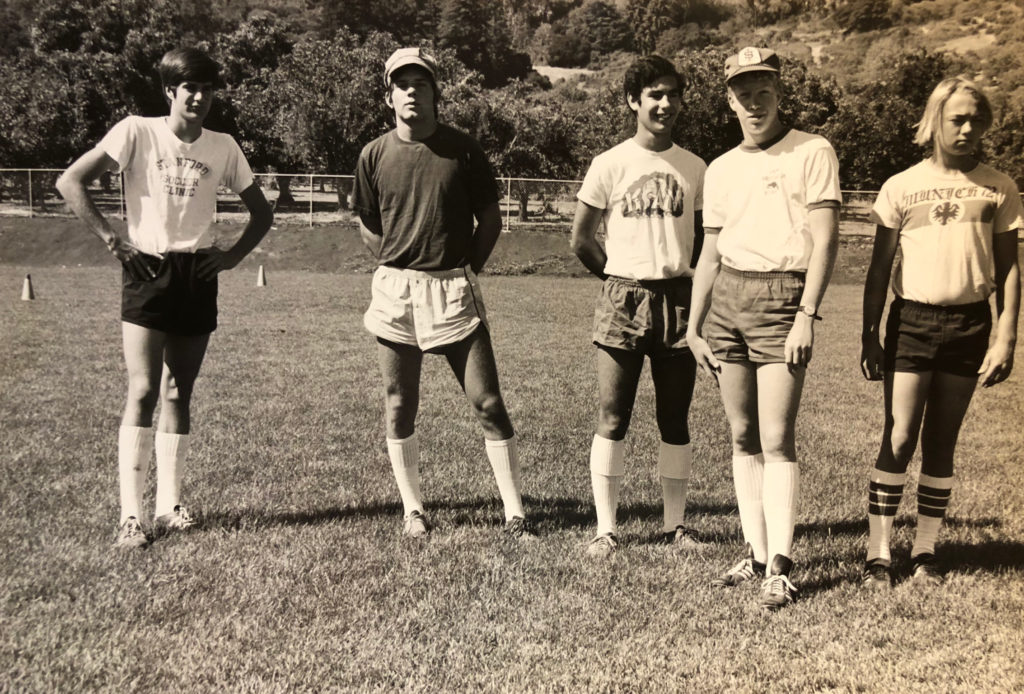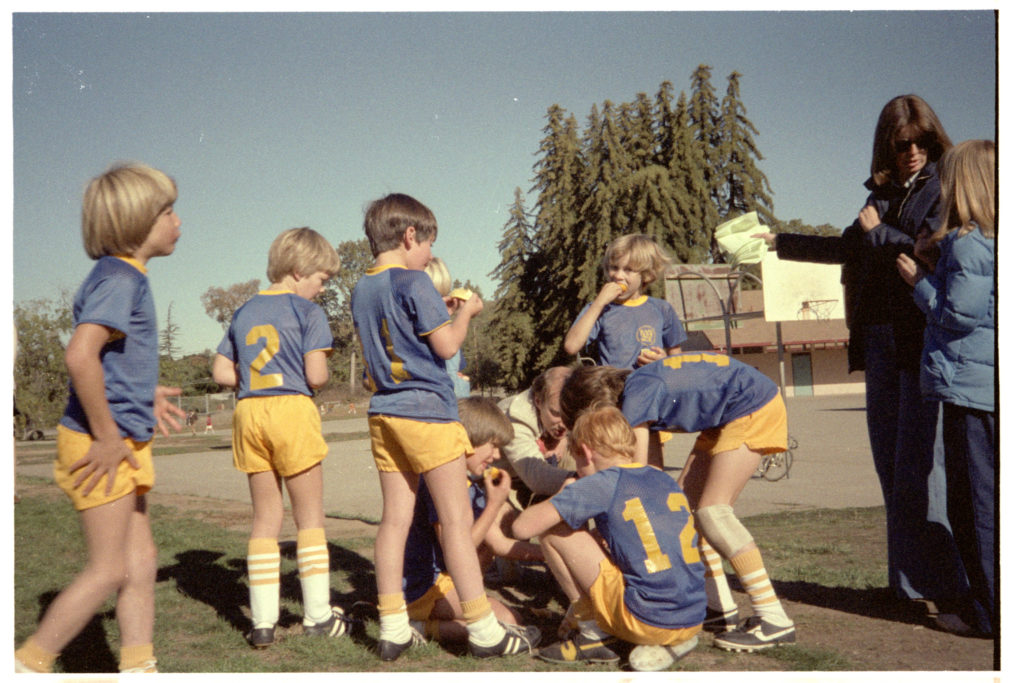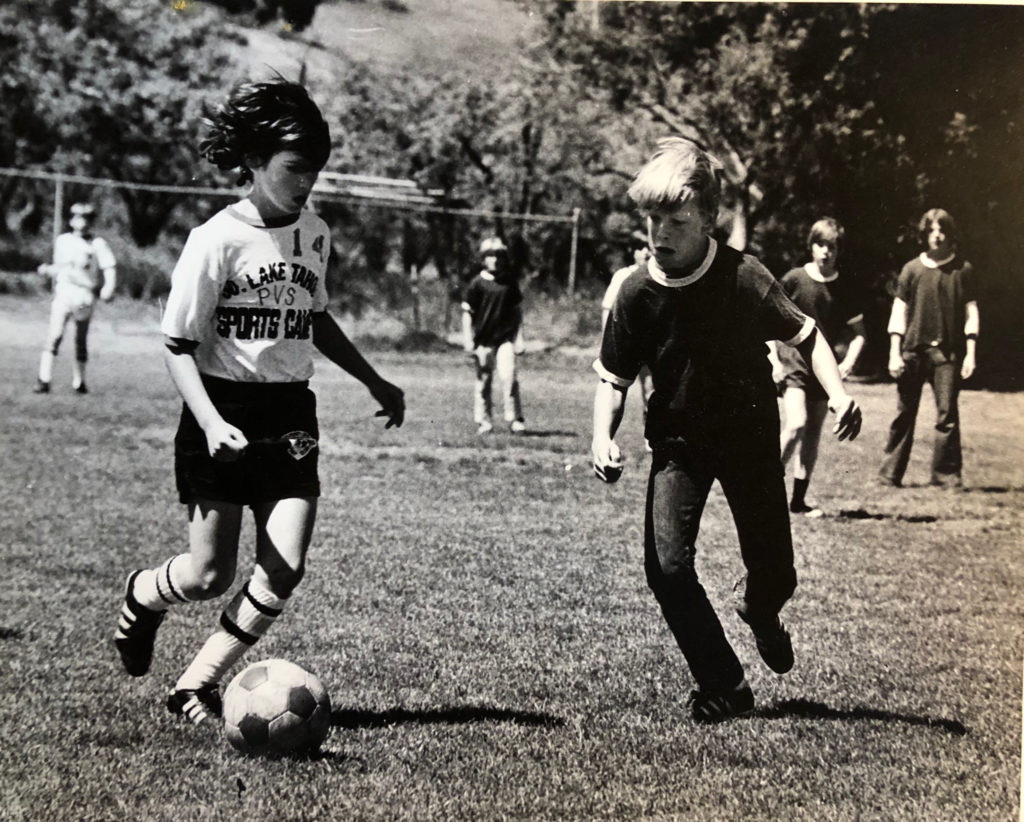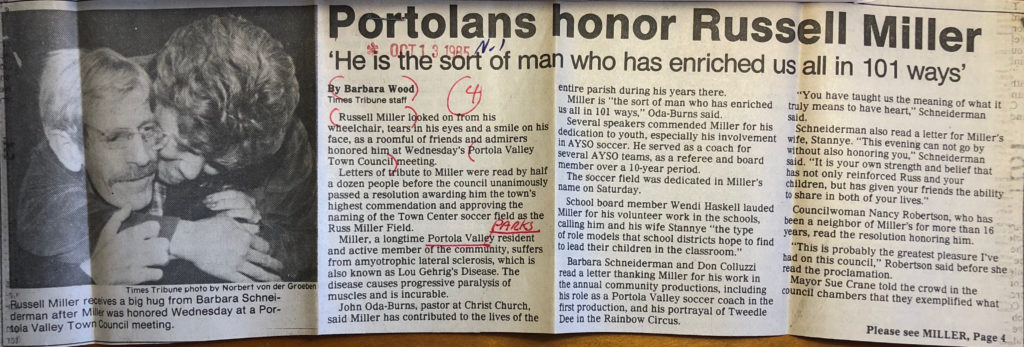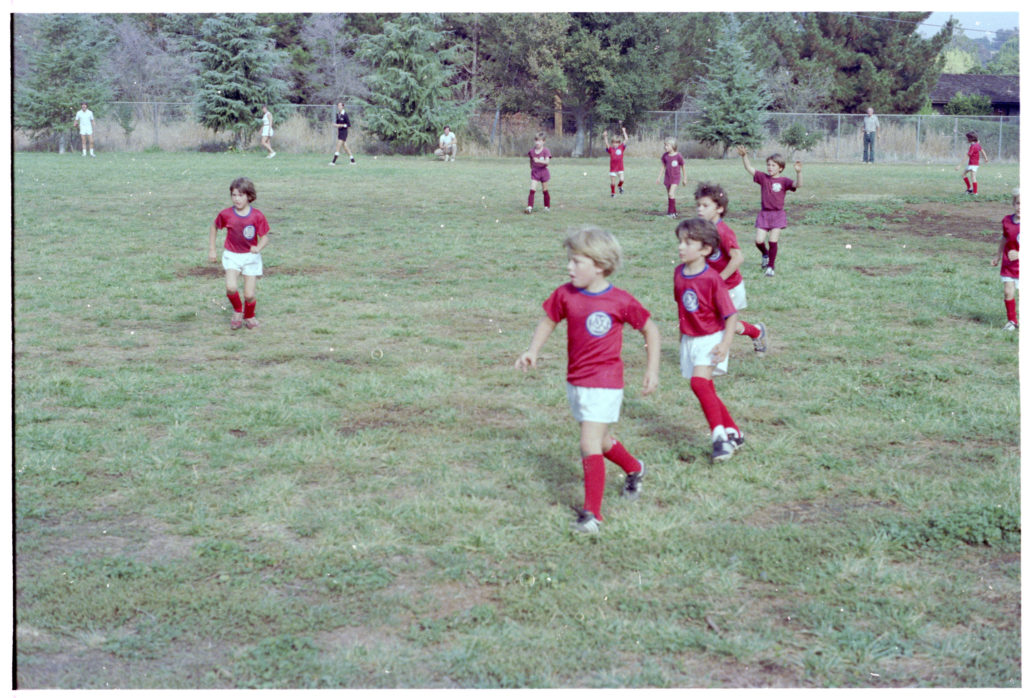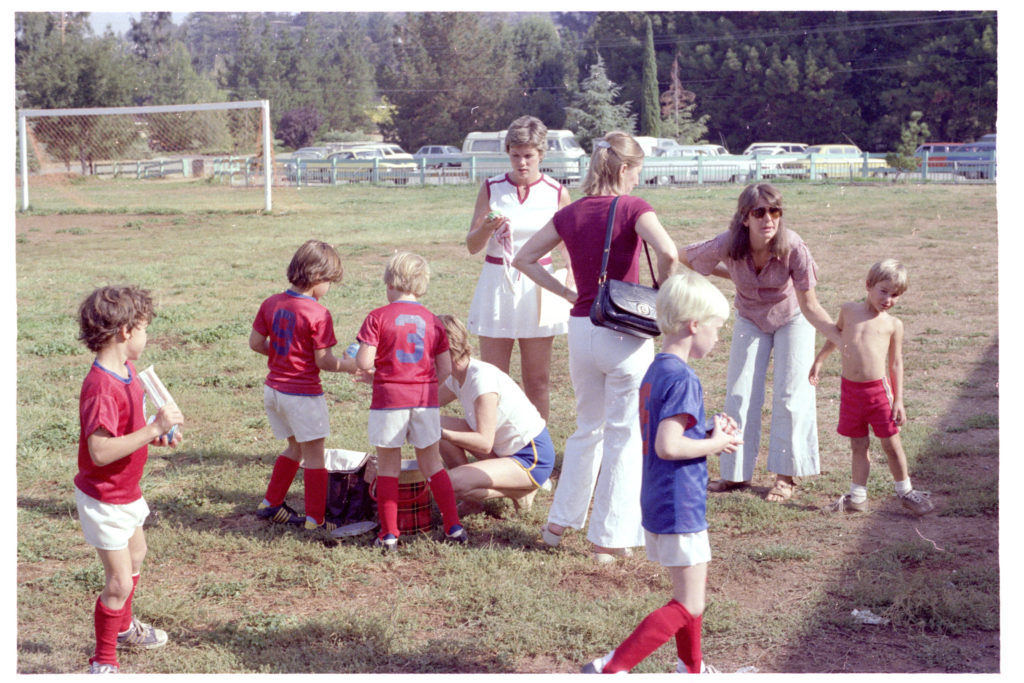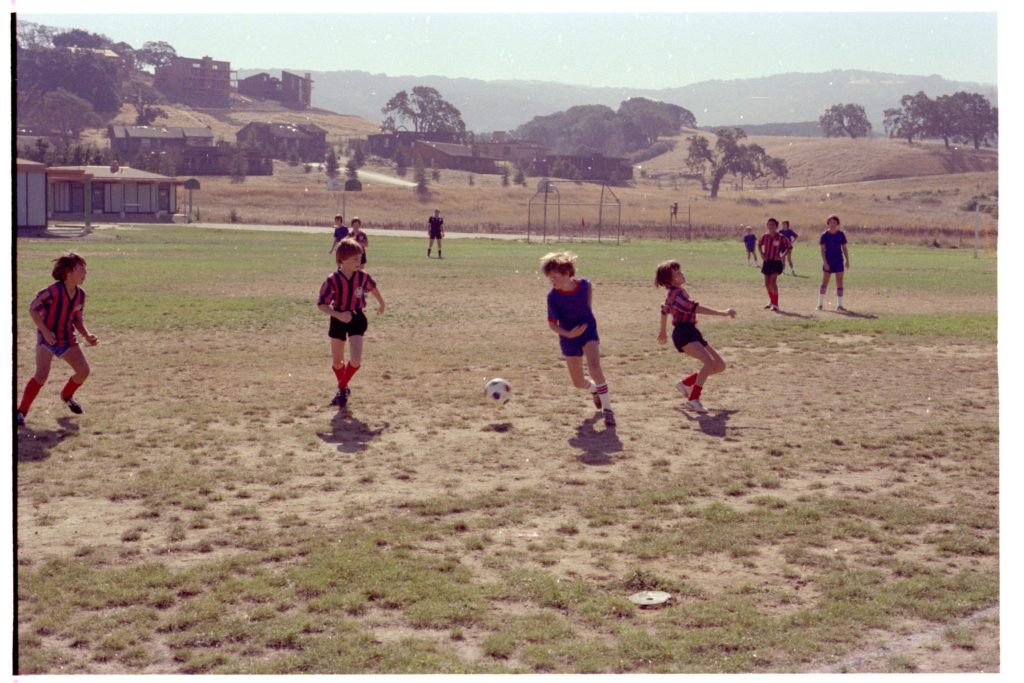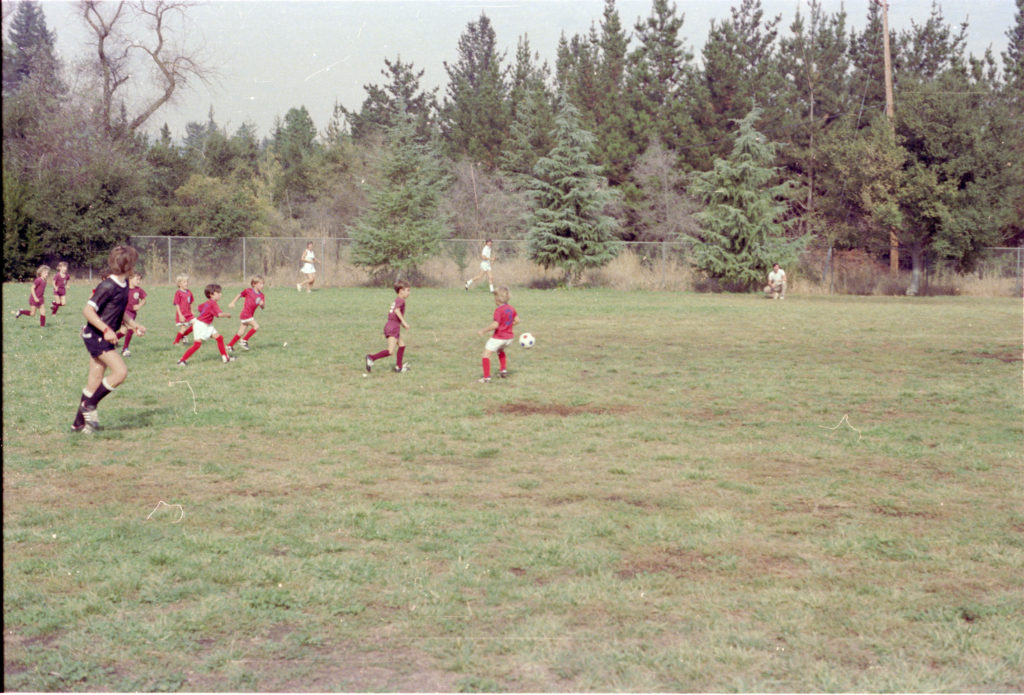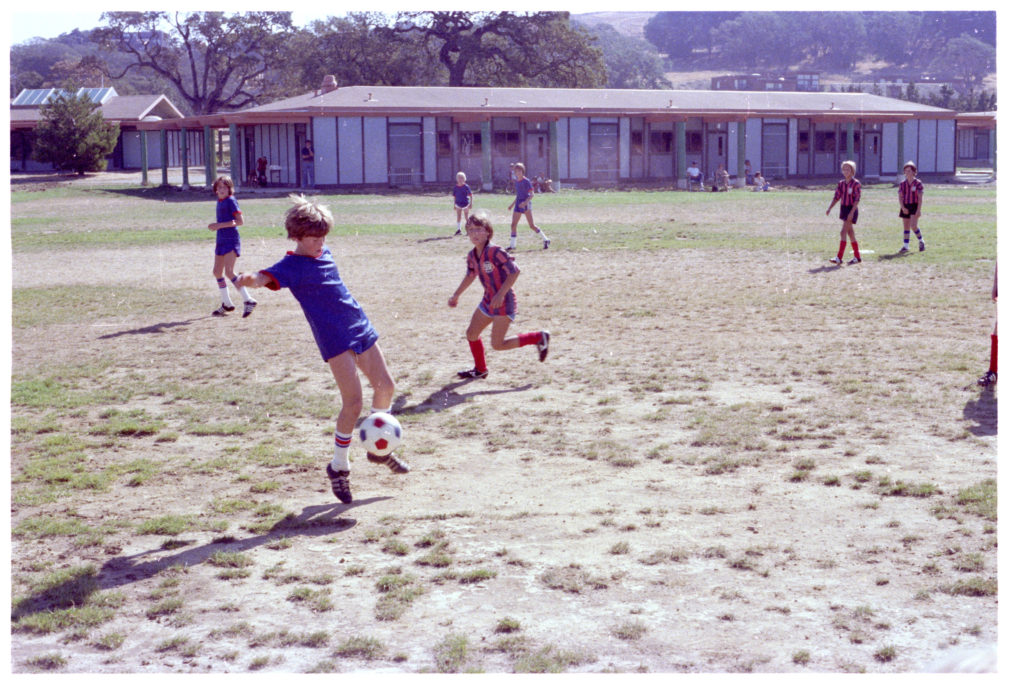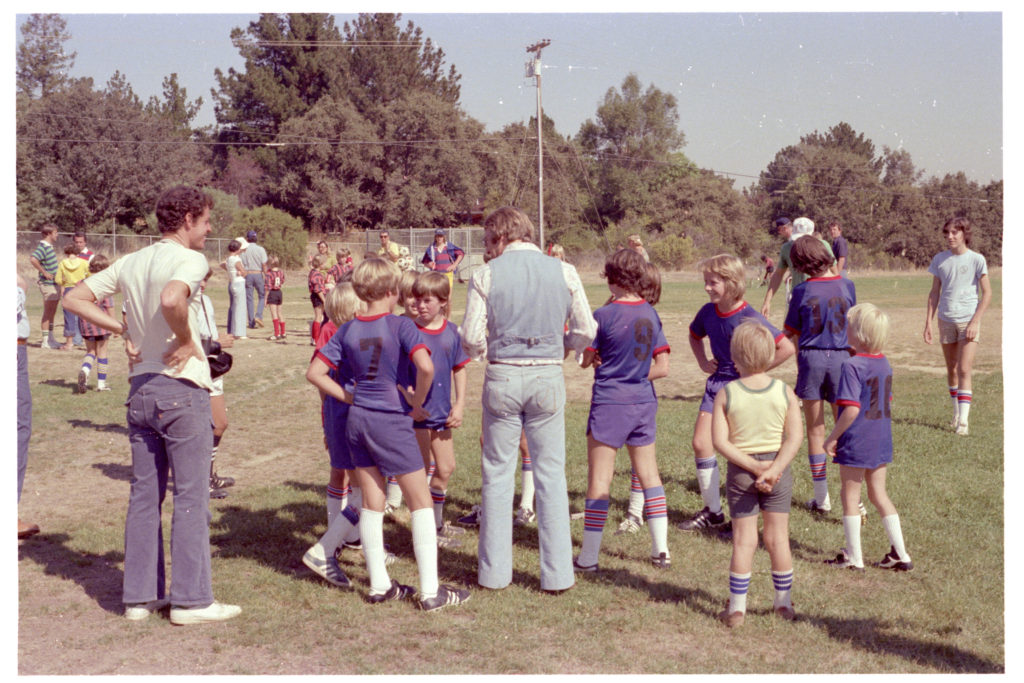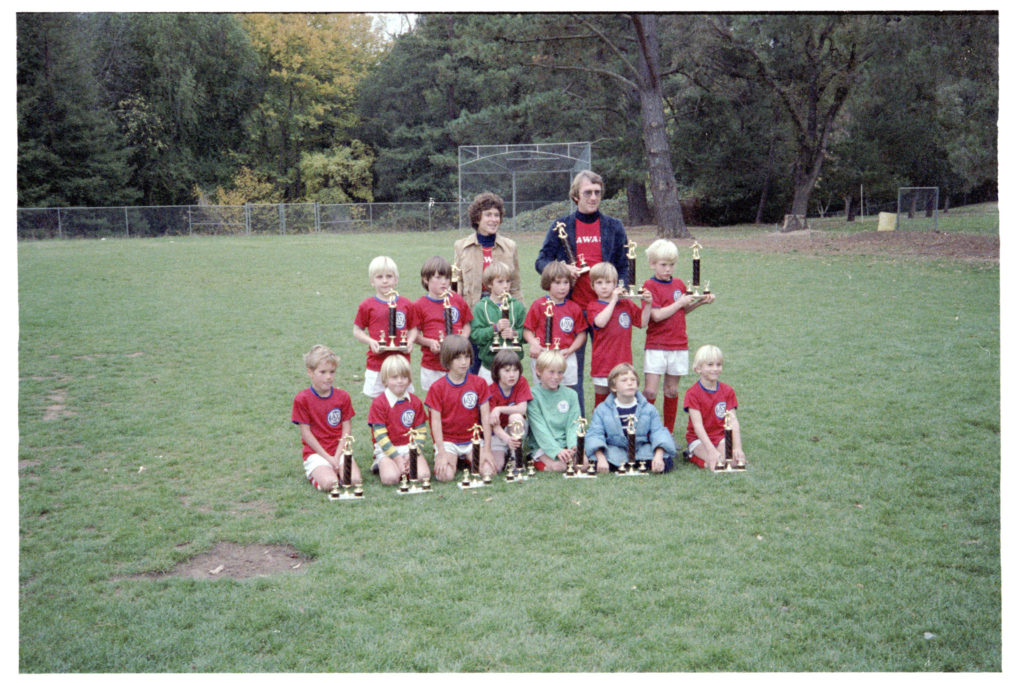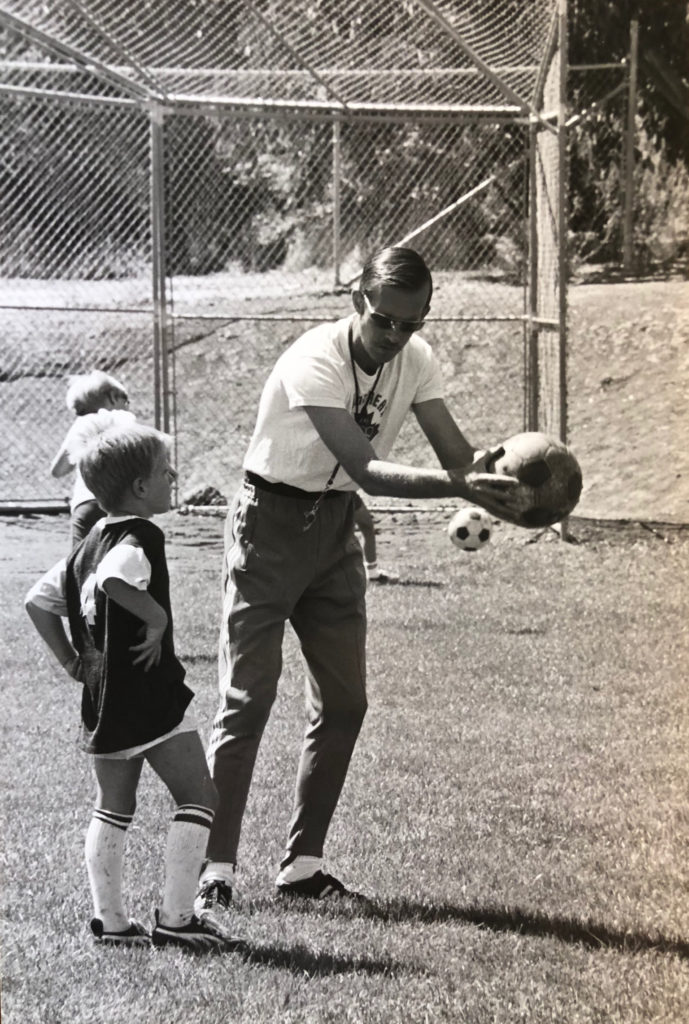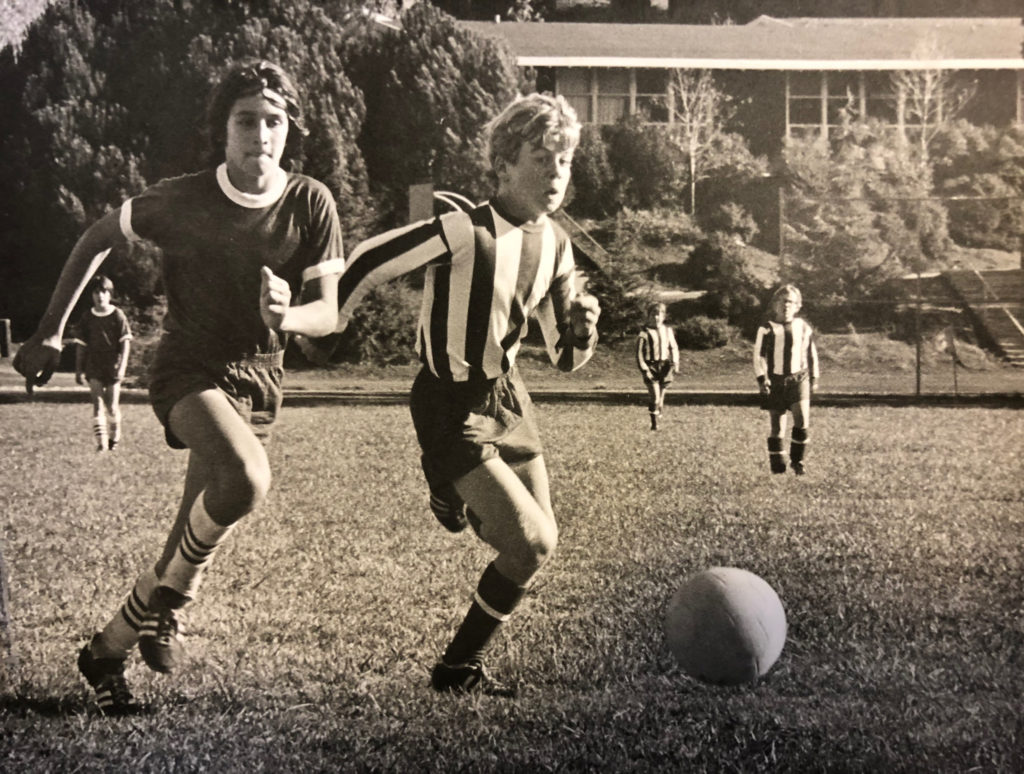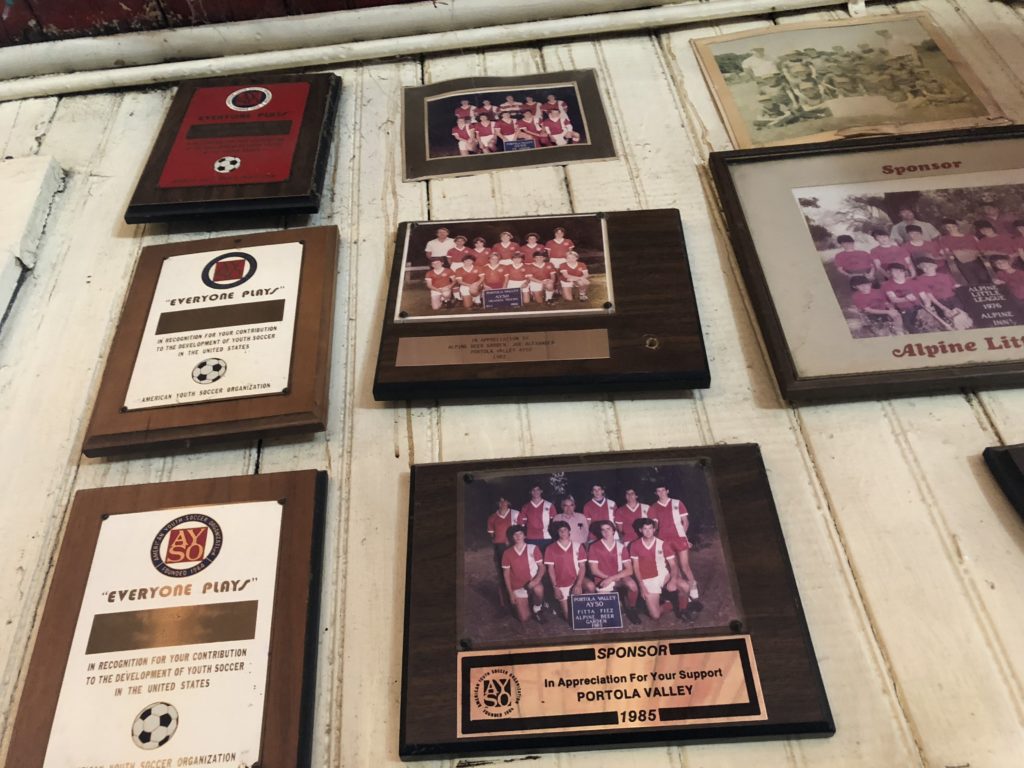About Us
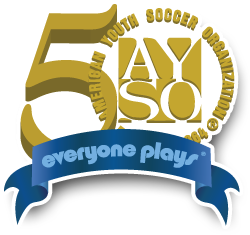 Celebrating it's 57th year of existence, AYSO Region 25 is proud to continue to provide volunteer Youth Soccer to youth from Portola Valley, Ladera, Woodside, Emerald Hills and La Honda.
Celebrating it's 57th year of existence, AYSO Region 25 is proud to continue to provide volunteer Youth Soccer to youth from Portola Valley, Ladera, Woodside, Emerald Hills and La Honda.
In 1968, when Karl Bizjak helped found the local American Youth Soccer Organization program in Portola Valley, it was the first expansion for the AYSO out of its Southern California origins.
Our continuing mission: develop and deliver quality youth soccer programs which promote a fun, family environment based on AYSO's Six Philosophies: - Everyone Plays - Balanced Teams - Open Registration - Positive Coaching - Good Sportsmanship - Player Development
Come back here throughout the season to relive some of the 50 years of soccer history in the Alpine region. You can also participate in the celebration by submitting any photos or stories from your personal archives to our Facebook page
I would like to thank Nancy Lund, Portola Valley Town Historian, for providing access to the archives.
Origins
A Brief History of AYSO, Section 2 and Region 25
The American Youth Soccer Organization (AYSO) was established in the Los Angeles area (Torrance) in 1964 with nine teams. It was the dream of a group of devoted soccer enthusiasts who started the organization in a garage. Today, AYSO has more than 50,000 teams and more than 650,000 players. It also employs 50 people at its National Support and Training Center in Hawthorne, California.
Karl Bizjak started AYSO here in 1968. This was the first group outside the original founding area of Los Angeles. Karl had a vinyard and winery in Portola Valley where he lived as well. Redwood City and Menlo Park were the heart of the initiative along with Portola Valley and Woodside. This was long before the concept of Sections, Areas and Regions we now know. Soon after, Jim Madison was the Southern Division director and xxxxx the Northern Division director.
Region 25 Portola Valley has the honor of being designated the founding location of AYSO soccer outside of Southern California. Region 1 Redwood City was the base of the Northern Division that would later become Areas 2B and then 2N after subdividing further. They received the distinctive Region 1 designation after the southern California cities where AYSO was founded could not settle who should receive the honor there. Region 109 Menlo Park / Atherton subdivided out of Region 25 Portola Valley / Woodside /La Honda very late. These two regions and cities south comprised the Southern Division that became Area 2A (and then 2J as well). The SF Peninsula activity was eventually designated Section 2 and became the cornerstone for growth in Northern California and eventually Nevada, Oregon and Washington State as well. When Region 25 was designated, Region 26 Palo Alto was split out at that time as was Region 27 Saratoga. 27 Eventually would grow to be 2J and everything east and south of highway 280. 26 would further subdivide out Regions 43, 44 and 45 of Los Altos, Sunnyvale and Mountain View; respectively.
Over the years, AYSO has created many valuable programs and concepts. Most notably, AYSO revolutionized youth sports with its "Everyone Plays" and "Balanced Teams" philosophies. In AYSO, each child who registers is guaranteed to play at least half of every game. To help create evenly matched games, all AYSO players are placed on new or "balanced" teams each year. These decisions are made based on each player's skill level and the overall ability of the team.
Giving Kids Their Kicks
Portola Valley's Karl Bizjak, a pioneer in building AYSO is inducted into the National Soccer Hall of Fame
By BILL RAYBURN
October 7, 1998 The Almanac
In 1968, when Karl Bizjak helped found the local American Youth Soccer Organization program in Portola Valley, it was the first expansion for the AYSO out of its Southern California origins.
Only 30 boys played for that program. Today, there are 43,000 boys and girls playing in Northern California, thanks in large part to the pioneering efforts of the 72-year-old Portola Valley resident.
For 17 years he promoted and helped organize AYSO youth soccer programs, and for that work was recently inducted into the National Soccer Hall of Fame in Oneanda, New York. Among those who worked with Bizjak was Chris Miller, former physical education specialist for over 25 years in the Portola Valley School District. "Karl was very meticulous," says Miller. "He did a little bit of everything for the AYSO, and he loved kids."
In 1969, a year after founding the local program with Lolek Jasinski and the late Tom O'Sullivan, Bizjak became regional commissioner and, due to the program's rapid growth, he was soon named area director, the first such position in the AYSO. He subsequently served on the national board of directors, then as vice president and executive vice president. Dick Wilson, executive director of AYSO, has been and heartily endorsed fated with the organization for 32 years, Bizjak's nomination to the Hall of Fame. "When Karl was on the national board of directors, he brought a corporate perspective that helped marketing and fund-raising," he explains. As area director, says Wilson, Bizjak oversaw local community-based programs, where he mediated disputes, scheduled tournaments, and recruited and supervised volunteers. "He was on the ground floor of soccer growth in the Bay Area," says Wilson.
Despite his pivotal contributions, the unassuming, soft spoken New Jersey native says he was shocked by his induction. "I've been retired from the AYSO since 1985,', he says. "They invited me in June to their annual meeting in Denver. I was thinking, 'What the hell do they want me there for?’”
To say thanks, as it turned out. "I didn't even know they had nominated me, which would have been honor enough."
‘Everyone Plays'
Since the AYSO's 1964 inception in Torrance, California, its credo has been, "Everyone Plays," a precept strictly adhered to through the years, the strongest of five planks in the AYSO platform. The others are balanced teams, open registration, positive coaching, and good sportsmanship. Today, the AYSO guarantees that each child will play at least half a game, "Parents find comfort in that," says Bizjak. " 'Everyone Plays' is simple, straightforward, and it has worked."
Crash course
Bizjak was first exposed to soccer in Seattle in 1966, when his son Karl volunteered his father's services as coach, even though Bizjak had never played or coached soccer. "I learned with the kids," he says with a chuckle. "I was reading books to stay ahead of them.”
When General Electric, for whom Karl had worked since 1951, transferred him to the Bay Area in 1966, it was his son once again, who drew his father into the local soccer scene. "my kid saw a notice, signed up, then he volunteered in again to be a coach," says Bizjak. "I ended up teaching two fathers who eventually coached the teams. Sort of coaching the coaches” that the time, the dearth of soccer knowledge locally was such that, even with his limited exposure to the sport Bizjak was considered a soccer guru. He signed up with the AYSO soon after.
AYSO Today
In addition to having programs in 46 states, the AYSO reaches to Russia, Puerto Rico, and Hawaii. Today the organization boasts 600,000 players worldwide, 47 percent of whom are female. (There were virtually no female players in the early 1970s according to Bizjak.)
from top down, AYSO is organized first by section, of which there are 13; then within each section are areas which break down further into regions. Perhaps most amazing about the AYSO are the 250,000 volunteers who fill the roles of coaches, referees and administrators and create network of assistance and support that has made soccer the most popular sport among American children. According to Wilson, there are 12 million soccer players, including adults, in the United States,
Dr. Bill Lukensmeyer, current area director of section 2 which include the local program, is another busy professional who gives freely of his time to the AYSO. He credits the organization's clear mission and ethical approach to children's sports as being the allure for the many volunteers. "Considering the size of the organization," he says, "there is very little red tape."
He also credits Bizjak with helping to build up the local program, which now includes Menlo Park, Portola Valley, Los Altos, Mountain View, Sunnyvale and Ravenswood (Belle Haven and East Palo Alto).
Field of play
While his major contributions fell along administrative lines in the "front office," Bizjak had some on-field experience early on as a referee, and he didn't fail to assert himself. "
I remember one game, the two teams were yelling at each other, not just in the flow of the game. This was egregious." So, he stopped the game, assembled both
teams and the coaches in the center of the field and announced, 'Stop the BS, or I'll stop the game.' They behaved themselves after that."
Professional soccer
Despite the popularity of youth soccer, Bizjak expresses disappointment in the lack of talented adult American players who can play at the World Cup level.
"It's going to take time," he says, but he is hopeful. The AYSO currently accepts kids between the ages of 4-1/2 and 18, up from a previous limit of 16. This, he says, could bode well for the sport's future in the United States.
He acknowledges that the lack of glamour and big money could be a deterrent to youngsters, who, at least in this country, tend to choose more high-profile sports. as hopes that this may change. "This year was the first time every World Cup game was available, somewhere, on TV. That kind of exposure is great."
Bizjak, Commissioner of the Year
Times Tribune, Los Angeles, March 28, 1972
Karl Bizjak, Northern California Regional Commissioner, was awarded a plaque as “Commissioner of the Year” at the Los Angeles Coliseum on March 26th, during halftime at the National Championship AYSO playoff. Bizjak, who is Northwestern regional manager of electrical components for General Electric Company, was given the nod over 16 other regional commissioners, the citation presented by American Youth Soccer President, Hans Stierle. In awarding the plaque, Stierle commended commissioner Bizjak for his outstanding leadership in directing the mushroom growth of youth soccer in Northern California.
Bizjak’s first introduction to soccer was in Seattle in 1966 when he volunteered to coach a team his young son Karl was on and it was only natural for him to “fall into the groove” when his company transferred him to this area in 1969, where soccer was only 2 years old with a handful of players. From that small beginning AYSO burgeoned into more than 1000 young athletes, coaches and referees under Karl’s leadership.
Commissioner Bizjak stated the, “AYSO’s phenomenal growth will continue, affording our youth the opportunity to develop body building endurance and stamina combined with mental and physical dexterity”.
Calling all Parents! Coaches Wanted
Parent coaching is the life blood of AYSO. Moms and Dads have been learning the technical, strategic and developmental skills since AYSO started in 1964 Nationally, 1968 here. In May and June prospective coaches can be found on the local town fields getting instruction from certified trainers so that they can pass along skills to the kids.
Here's an excerpt from the local news in October 1971. Times have changed and today it is no longer a men and boys only game:
"Never played Soccer? Join the crowd. Men who’ve never or seldom played soccer are learning the fundamentals of the game to help local American Youth Soccer Organization volunteers cope with the booming interest in the sport on the part of local boys. The “Help Wanted” sign is out and the response was great for the first coaches and referees workshop at Portola Valley School. The second session will be held this weekend. Those interested (experience not required) may call Ben Sanguinetti at 851-8718. That’s Ben about to clout the ball in the picture above. At left, John van Doremalen of San Jose demonstrates the rights and wrongs of the game. Top: Coaches-to –be pay close attention to the expert, who plays with the Grasshoppers when he is not helping boost his favorite sport through AYSO. "
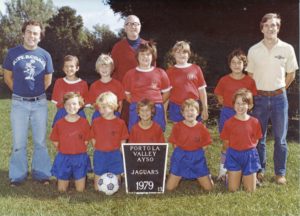
SuperCoach Mr. Suaya
Everyone plays !
From the Country Almanac, 11/24/1976
"Everyone Plays" is the motto of the American Youth Soccer Organization. A.Y.S.O. began in the Los Angeles area, but our Region 25 (Portola Valley, Ladera, Woodside, and La Honda) didn't receive it's charter until 1968. At that time we had only nine teams with 130 boys playing.
Today, Region 25 boasts 57 teams of both boys and girls between the ages of 6-18 with about 900 young people participating. In all age levels the fundamentals are taught and practiced over and over again. Rules and game situations are as important as just kicking the ball. After at least one year in A.Y.S.O. every boy and girl will have a good general knowledge of the game and can contribute his or her share when the time comes. Everyone must play at least two quarters, regardless of his ability. Safety and good sportsmanship are emphasized at all times. These basics are what has made the soccer program what it is today. There are over 100,000 youths now playing across the United States including Hawaii.
There is much behind the scene assistance. Not to mention the local businesses, parents, friends, and grand-parents who sponsor the teams, we have a small militia of helpers who put up fences, dig trenches, build bleachers, assemble goals, coach, and referee. Of course the spectators are not to be forgotten.
Field Commissioner, Frank Sammann, works closely with the Woodside Priory, and the Park and Recreation Committees of Ladera, Woodside, and Portola Valley to see that our fields are maintained properly and the playing conditions are favorable. This is the biggest expense that comes out of the budget. Occasionally a mistimed sprinkler will disrupt a practice or game, but everyone usually laughs about it. 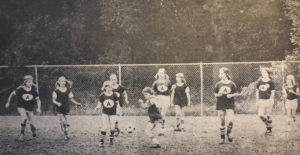
The Board Members with John Lazar as Commissioner and Pat Lovazzano as Assistant Commissioner oversee the soccer season. Rule changes are discussed and approved by the board as well as over-seeing the activities of the players and teams. Again harmony and good sportsmanship are an essential part of this organization. The Commissioner of Referees, Don Yates, and the Com-missioner of Coaches, Ben Sanguinetti, each hosted a workshop for prospective volunteers. Training was given in "How to Run a Practice and Coach a Team," and refereeing techniques were taught and reviewed. These men spent a great deal of time organizing these clinics, and the turnout was exceptional.
Region 25 is very lucky to have such a hard working core of volunteers to work with our children in this fast becoming popular sport of soccer. Other members of the Board include Henry Montgomery, treasurer, Joan Wollenenberger, secretary, with John Bartlett, Merrill Carlsmith, Nancy Baglietto, Dick Connors, Sherry and Leon Faure, Bob Gray, Leo Hoenighausen, Bob Lohse, Rich Mainz, Christopher Miller, Jim Rudolph, and Don Yates.
Referees
What is a referee?
From the Country Almanac News, December 10, 1980, by Nancy Baglietto
According to Webster, “a referee is a sports official having final authority on administering the rules of a game.”
These are the men, women and teenagers who give freely of their time to officiate the games in AYSO. Seldom do they receive and thanks or praise for their efforts.
Without these dedicated people the games would often be out of control, serious injuries could occur, and the “fun” of the games might go by the wayside. Like professional referees, these volunteers are often subjected to criticism, must show no emotion, and are even denied the privilege of congratulating the winners.
The Job
The referees, however, do have many positive feelings about their jobs.
The experience for one youth gave him a new outlook on the game and a better feeling of respect for the person in charge.
Another teenager remarked, “reffing has taught me more-self-control. My parents have always told me to respect adults, but it is hard at times to let the comments of the spectators roll off.”
Yet another junior referee likes the way the little kids look up to him. “They seem to relate better, because they have seen us play in the big games.”
One of the adults says, “Refereeing allows me to escape from the Saturday routines. It is so refreshing to see the energy of the youth enjoying themselves in healthy competition.”
The Commissioner
Serena Wade, Commissioner of Refereed, is pleased with the corps from which she draws. Although limited to a total of 36 referees, 10 are teenagers or juniors.
Because the season began so quickly, there was no opportunity to hold clinics for training or recruiting potential officials. Statistics, according to Mrs. Wade show that all scheduled games have had at least one referee, and there have not been any “no show” situations.
The junior referee, often teamed with a more experienced referee, have been on hand for 35 percent of the games. There have been only five red cards this season; three players, one coach and one parent.
Next year Mrs. Wade hopes to institute referee clinics. There is also a possibility of paying junior referees as an incentive to attract more youth into the officiating end of the program.
One closing thought about the referees in the AYSO program is that they do make mistakes. But unlike the mistakes of the players, theirs are not excused. Often their calls are questioned by people who have only token knowledge of the laws of the game.
Let’s give a cheer to those who give of their time and knowledge so our children can participate in youth soccer:
Dean Babcock, Mike Baglietto+, Mark Baglietto+, Frank Cameron, Tom Cass, Ian Cummings+, Keith Davis, Walt Ernst, Leon Faure, Mat Faure+, John Gardner, Rolland Haitz, Noel Kidd+, Bob Lewis, Jim Lipman, Val Lipman+, Dick Lucas, Chris Miller, Reagan Miller+, Ron Plough, Ralph Rossi, Steve Rothert+, Ben Sanguinetti, Bob Sanguinetti, Todd Sammann+, Rolf Spamer, Pat Stadel, Earl Stutes, Bob Thompson, Jim Thompson, Warren Teitleman, Serena Wade, Lindene Wade+, Bill Wade+, Bill Wallau, Dan Yates, (+ Junior referees)
Open Season.
The Country Almanac, Circa 1976
Despite the Muddy Fields this past weekend, over 800 boys and girls from Portola Valley, Ladera and Woodside put on their soccer shoes to open the American Youth Soccer Organization season.
Here from front to back, Timmy Smith, Norman LeClerc, Jock Hoyt, and Devin Summers follow the bouncing ball down the field as Ian Cummings brings up the rear. Referee in back is John Gardner.
The Woodside Priory “Tigers” defeated Vance Brown and sons 4-2 at the Priory Field on Saturday October 2.
Photo by Fran Dempsey.
Local AYSO Notables
Matt O'Sullivan
Source: Wikipedia.
Matt, O'Sullivan grew up in the San Francisco Bay Area and was introduced to soccer while living in La Honda. His first team was the La Honda Bandits which played in the Northern California division of the American Youth Soccer Organization (AYSO). O'Sullivan's father, Tommy, was one of the founding members of the Northern California division of the AYSO. O'Sullivan attended the Woodside Priory School in Portola Valley and was named All American his senior year. Matt played three years with the Juventus Soccer Club of Redwood City during which two state championships as well as two trips to the final eight of the McGuire Cup were achieved. O'Sullivan attended Chico State University where he played on the men's soccer team as a starter for all four years playing in the first Collegiate Division Two Soccer Championship. He was a 1974 and 1975 Honorable Mention All American and was inducted into the Wildcat's Hall of Fame in 1996.[1] O'Sullivan was a member of the 1976 Olympic Soccer Team playing in several international matches and qualifying games and a member of the U.S. National 'B' Team in 1977 which travelled and played in South Korea.
Professional
In 1976, Seattle Sounders selected O'Sullivan in the first round of the North American Soccer League draft.[2] In 1977, he signed with the Houston Hurricane, playing three outdoor seasons. He also went on loan with the Houston Summit of the Major Indoor Soccer League for two indoor seasons. He played 3 seasons with the Memphis Americans retiring from professional soccer in 1984.
Fields
Judging from the vintage photos available from the early years of AYSO soccer, most of the home games were played at the Woodside Priory School. In the early 1970s games were also played at Portola Valley School (PVS) and Rossotti Field, where the town leased the field from the owners of the Alpine Inn Beer Garden. Eventually games moved to the elementary school campuses of Woodside Elementary, Ormondale and Corte Madera. Enjoy some of these vintage photos from the town archives and a few from my own collection.
Ian Reed.
Woodside Priory
PVS - Town Center - Russ Miller Field
Portolans Honor Russell Miller
‘He is the sort of man who has enriched us all in 101 ways'
Times Tribune, October 13, 1985
By Barbara Wood
Russell Miller looked on om his wheelchair, tears in his eyes and a smile on his face, as a roomful of friends and admirers honored him at Wednesday's Portola Valley Town Council meeting. Letters of tribute to Miller were read by half a dozen people before the council unanimously passed a resolution awarding him the town's highest commendation and approving the naming of the Town Center soccer field as the Russ Miller Field.
Miller, a longtime Portola Valley resident and active member of the community, suffers from amyotrophic lateral sclerosis, which is also known as Lou Gehrig's Disease. The disease causes progressive paralysis of muscles and is incurable.
John Oda-Burns, pastor at Christ Church, said Miller has contributed to the lives of the
entire parish during his years there. Miller is "the sort of man who has enriched us all in 101 ways," Oda-Burns said.
Several speakers commended Miller for his dedication to youth, especially his involvement in AYSO soccer. He served as a coach for several AYSO teams, as a referee and board member over a 10-year period. The soccer field was dedicated in Miller's name on Saturday.
School board member Wendi Haskell lauded Miller for his volunteer work in the schools, calling him and his wife Stannye "the type of role models that school districts hope to find to lead their children in the classroom." Barbara Schneiderman and Don Colluzzi read a letter thanking Miller for his work in the annual community productions, including his role as a Portola Valley soccer coach in the first production, and his portrayal of Tweedle Dee in the Rainbow Circus.
"You have taught us the meaning of what it truly means to have heart," Schneiderman said. Schneiderman also read a letter for Miller's wife, Stannye. "This evening cannot go by without also honoring you," Schneiderman said. "It is your own strength and belief that has not only reinforced Russ and your children, but has given your friends the ability to share in both of your lives." Councilwoman Nancy Robertson, who has been a neighbor of Miller's for more than 16 years, read the resolution honoring him. "This is probably the greatest pleasure I've had on this council," Robertson said before she - read the proclamation…
